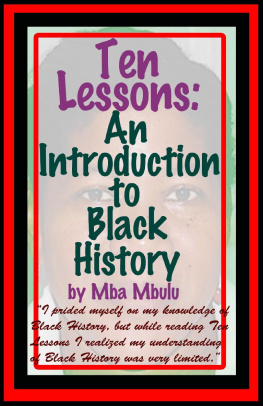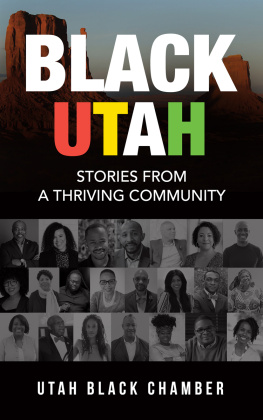Copyright 2020 by Andrew Raybon.
All rights reserved. All rights reserved. By payment of the required fees, you have been granted the nonexclusive, nontransferable right to access and read the text of the e-book on-screen. No part of this text may be reproduced, transmitted, downloaded, decompiled, reverse-engineered, or stored in or introduced into any information storage and retrieval system, in any form or by any means, whether electronic or mechanical, now known or hereafter invented, without the express written permission of the author.
Disclaimer: This book was prepared or accomplished by Andrew Raybon in his personal capacity. The opinions expressed in this book are the authors own and do not reflect the official policy, position, views, or opinions of the Department of Defense, Department of the Navy, or the United States Government. Any content provided is not intended to malign any religion, ethnic group, club, organization, company, individual or anyone or anything.
Limit of Liability/Disclaimer of Warranty: This publication is designed to provide accurate and authoritative information in regard to the subject matter covered. It is sold with the understanding that neither the author nor the publisher is engaged in rendering legal, investment, accounting or other professional services. While the publisher and author have used their best efforts in preparing this book, they make no representations or warranties with respect to the accuracy or completeness of the contents of this book and specifically disclaim any implied warranties of merchantability or fitness for a particular purpose. No warranty may be created or extended by sales representatives or written sales materials. The advice and strategies contained herein may not be suitable for your situation. You should consult with a professional when appropriate. Neither the publisher nor the author shall be liable for any loss of profit or any other commercial damages, including but not limited to special, incidental, consequential, personal, or other damages.
The Framework: Structure for the Black Community by Andrew Raybon
ISBN (Paperback) | 978-0-578-76653-9 |
ISBN (ebook) | 978-0-578-76654-6 |
Library of Congress Control Number: 2020919015
Edited by Sherian Brown
Proofreading by Tia Ross
Book cover design by Romi Lindenberg
Interior formatting by DTPerfect.com
Website Design by Oscar Polanco
Contact the author at www.theframeworkbook.com
T he intention behind this book is to create a road-map for people of color, particularly for those in the black community. This book will include lessons learned, highlight common fallacies, address racism, and uncover the gravity of our actions and inactions. Much of the information that will be presented is not new. There have been thousands of brilliant people of color who have come before me, explained the conditions in which we live, and paved the way for us to maneuver successfully. I still, however, find it beneficial to create a guide that enables us to push toward the future and find ways to reach new levels of success and discernment.
At times it can be a bit overwhelming to consider the plight of our people comprehensively. To be clear, there is no shame in this. It is the responsibility of the leaders among us to use our positions and intellect to navigate these situations to benefit the community at large. Every voice of reason must be heard, and we must find innovative ways to continue the work of our ancestors through our talents and tenacity. This, in part, is my aspired contribution. There are many issues we face, and as we turn the page to a new decade, there must be a more strategic plan to address the issues commonly seen throughout our communities.
One extremely troubling event that highlighted the deep racial tension in this country was the murder of George Floyd. This event in and of itself remains unacceptable, particularly because of Americas stature and standing in the world. The eyes of the world were opened in new ways at the cost of yet another black man. This event has rekindled underlying racial tensions that have remained constant, although these tensions have been newly inflamed.
The current condition of our country is deeply troubling. We are among the most capable countries in the world, yet we witness division on a daily basis. This division, especially in some parts of the country, has reached a level of normalcy. It would be mortifying for the United States, which is among the most successful civilizations in the world, to collapse largely because of racial tensions, radical extremists, domestic terrorists, and blatant ignorance. For this reason and many more, it is imperative that we address these issues smartly, proactively, honestly, and as a nation. Adversaries are reluctant to inflict harm upon us, but we can certainly inflict harm upon ourselves.
George Floyds death was sickening, as were the deaths of countless other black men and women in this country. To have an opposing position on this matter shows a fundamental lack of human empathy. It is unequivocally wrong to witness an American citizen killed by a public servant and protector and yet fail to see the blunders associated with the way in which these events unfolded.
In my experience, the general fallacy, particularly with the thoughts and opinions of blatantly ignorant individuals, is that race in no way, shape, or form was a factor. So, in an attempt to appear as if they are not racist, whether sincere or not, their method of approach to the conversation often translates to analytical observation of the behaviors that took place and why the end result is justified.
To be fair, this is a logical approach to solve to a traditional problem; however, a few points are often missed when the conversation has concluded. The fact of the matter is that there are racial disparities when it comes to the issue of police brutality, and this must be acknowledged to some degree. At a minimum, the ultimate conclusion in this case should encompass the unfortunate and unacceptable fact that an American citizen was killed by a person committed to the protection and assistance of the general public. In a modern society and a nation characterized as the leader of the free world, this wanton behavior should not happen.
Sadly, the acceptance of such inhumane behavior is among the points that are lost in translation. If we as Americans truly saw each other as equals, empathy and understanding of the depth of this injustice would be the natural response. In other words, there would be every reason to feel empathetic toward your fellow countrymen. The question then becomes what prevents this empathy? To answer this question, we must consider the racial tensions and internal conflict this country has experienced.
It would be nave to think years of inequality simply go away over time without intentional efforts and the contributions of all Americans. Given our history with rooted racism and biases we have struggled through for centuries, it has now become easy to disregard the humanity and the associated rights we should all share as equals. Racism, both intentional and unintentional, is without question a reasonable percentage of the problem within our country. To that end, we as a community must understand our role in this complicated environment but still hold true to our culture and our core values.
People of color are very different today than they were long ago at their various places of origin. The lessons and objectives outlined in this writing are intended to set us on the path to restoration and collectivism.







